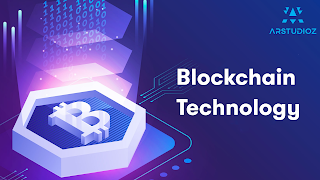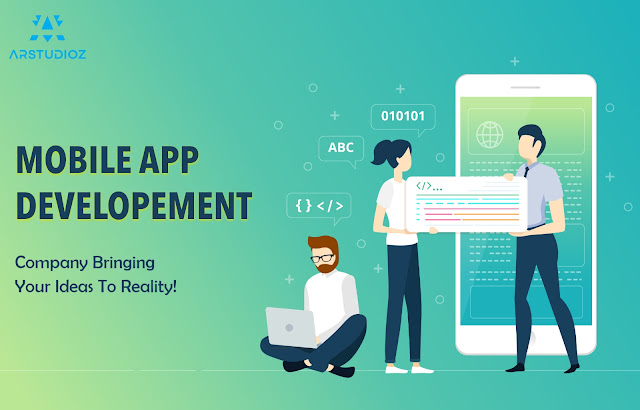How blockchains could change the world?
The blockchain is basically a distributed database. Think of a giant global spreadsheet that runs on millions upon millions of computers. It is distributed. It is open source, so anyone can change the underlying code and see what is happening. It is really equal to equal; it does not require powerful intermediaries to authenticate or settle transactions.It uses cutting-edge crypto, so if we have a global, distributed database that can record the fact that we've made this transaction, what else could it record? Well, you could record any structured information, not just who paid whom, but who married who or who owns what land or what light purchased power from which power source. In the case of the Internet of Things, we are going to need a blockchain solution system underneath. Banks will not be able to settle trillions of transactions in real time between thing, So this is something extraordinary. An immutable and unbreakable distributed database of digital assets. This is a platform for truth and a platform for trust. The implications are staggering, not only for the financial services industry, but also in almost every aspect of society. Most blockchains, and Bitcoin is the largest, are what you call systems without permission. We can transact and meet the economic needs of others without knowing who the other party is and independent of central authorities. All of these blockchains have a digital currency of some sort associated with them, so everyone talks about Bitcoin in the same breath as the blockchain, blockchain technology companies is the largest.But to me, the blockchain, the underlying technology, is the biggest innovation in computer science: the idea of a distributed database where trust is established through massive collaboration and smart code rather than a through a powerful institution that performs authentication and solution.
Blockchains in the capital markets
The way it works is that if I owe you $ 20, we do the transaction. There is a great community called miners, and they have a powerful computing resource. Some people have estimated that all of Google's computing power would be 5 percent of this blockchain computing power, for the Bitcoin blockchain. That platform solves this big problem called the
double payment problem. If I send you an MP3 file and send it to someone else, it's a problem for the record industry, but it's not a massive problem. If I send you $ 20 and send the same file to someone else, that's a big problem. It's called fraud, and the economy stops if you have a monetary system based on that. What happens is that I send you the $ 20, and these miners, for short, authenticate that the transaction happened. Every miner is motivated to be the first to find the truth, and once he finds it, it is evidence to everyone else. When you find the truth and solve a complex math problem, they pay you some money, some Bitcoin. For me to hack that and try to send the same money to someone else, or for them to come in and try to take your $ 20 in Bitcoins, it's practically not possible because I would have to hack that ten minute block. That is why it is called blockchain, and that block is linked to the previous block and the previous block: ergo, chain. This blockchain runs on countless numbers of computers. You would have to commit fraud in light of the world's most powerful computing resource, not just for that ten-minute block but for the entire history of commerce, on a distributed platform. This is practically not feasible.
So sure, there have been a lot of issues with Bitcoin. You had great exchanges like Mt. Gox fails. You had the Silk Road, where Bitcoin was the payment system for all kinds of horrible and illegal activity. But don't get confused with that. Many people make the mistakeof thinking, "Bitcoin? Well that's an asset. Should I invest? Will it go up or down? Well, that doesn't interest me, just like speculating in gold doesn't interest me. Something that is of greater interest is Bitcoin as a digital currency that allows us to make these types of transactions. A cryptocurrency that is not based on nation-states. The most important thing we focus on in our work is the much more important question,this underlying distributed database technology that allows us to have a true and immutable record of everything.
How disruption can occur
The financial services industry is poised for serious transformation or transformation problems, depending on how you approach this problem. For Blockchain Revolution research, we reviewed and identified eight different things the industry does: move money, store money, lend money, exchange money, vouch for money, account for money, etc.
Each of those can be challenged.
You choose any industry, and this technology has enormous potential to disrupt it, creating a more prosperous world where people can participate in the value they create. The music industry, for example, is a disaster, at least from the musicians' point of view. They used to have most of the value taken by great labels. Then came the tech companies, which took a lot of courage, and the songwriters and musicians were left with crumbs in the end. What if the new music industry were a blockchain distributed app where I, as a songwriter, could publish my song on the blockchain with a smart contract that specifies how it will be used? Maybe as a recording artist who posts my music on a blockchain music platform, I might say, "You listen to the music, it's free. Do you want to put it on your movie? It's going to cost you so much, and that's how it works. You put it on the movie, the smart contract pays me. " Or how about using it for a ringtone? There is the smart contract for that.
What can go wrong?
It is a place of recklessness, chaos and calamity. This could kill him if we don't find the leadership to unite and create the equivalent organizations that we have for Internet governance. We have the Internet Engineering Task Force, which creates standards for the network. We have the Internet Governance Forum, which creates policies for governments. We have the W3C Consortium, which creates standards for the Web. There is the Internet Society; that's a defense group. There is the Internet Corporation for Assigned Names and Numbers (ICANN), an operational network that only delivers domain names. There is a structure and a process to work things out. Right now, there is a big debate going on about the size of the block. We need a larger block size to be able to handle all the transactions that will arise. There are big differences. There are legitimate points of view, but the problem is that there is no process to reach an optimal solution. I am hopeful, even optimistic, that this will proceed. It looks a lot like the early 90s to me. You have all the smartest venture capitalists, the smartest programmers, the smartest business executives, the smartest people in banking, the smartest people government, the smartest entrepreneurs in all of this. That is always a sign that something big is happening. Is it irrational exuberance? I do not know. Last year, $ 1 billion ventured into this area alone. I have more hope because I can see the power of applications to interrupt things for good. Rather than simply redistributing wealth, perhaps we could change the way wealth is distributed in the first place. Imagine a Kickstarter-like campaign to launch a company where you have 50 million investors and all invest a couple of dollars, or very small amounts.




Comments
Post a Comment